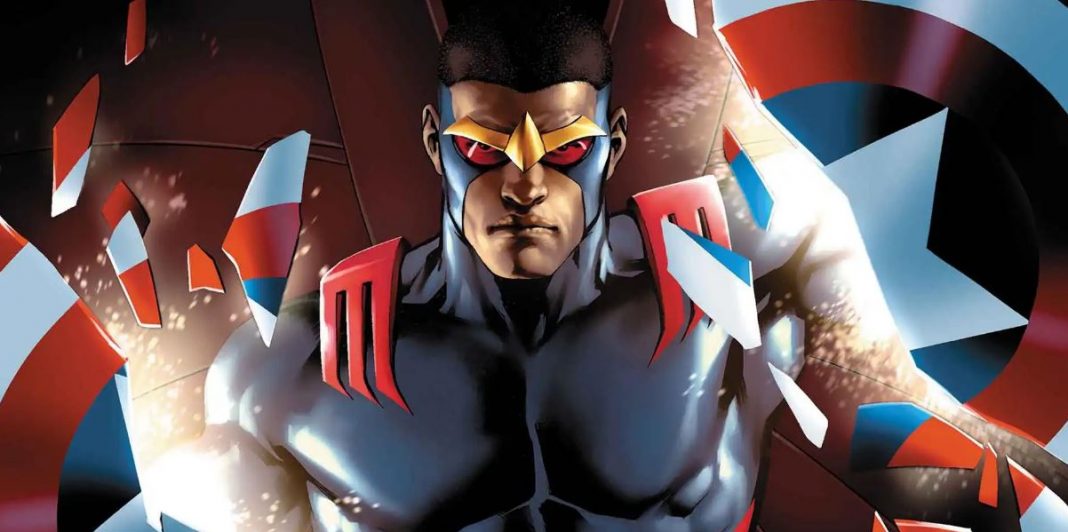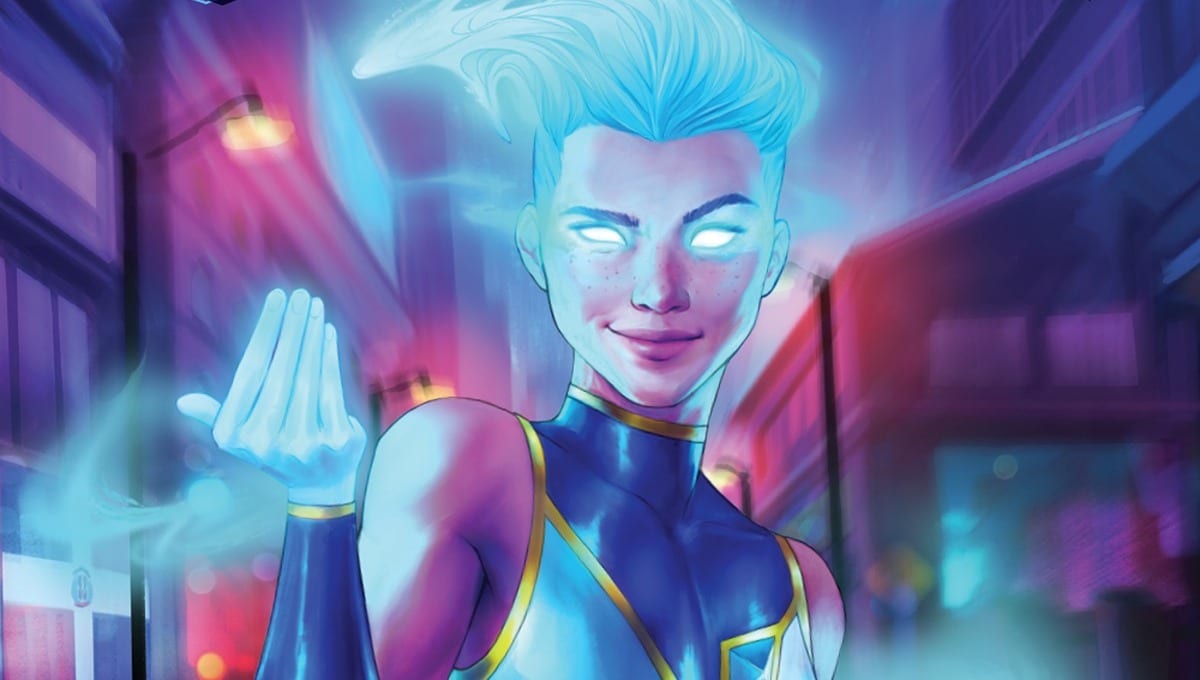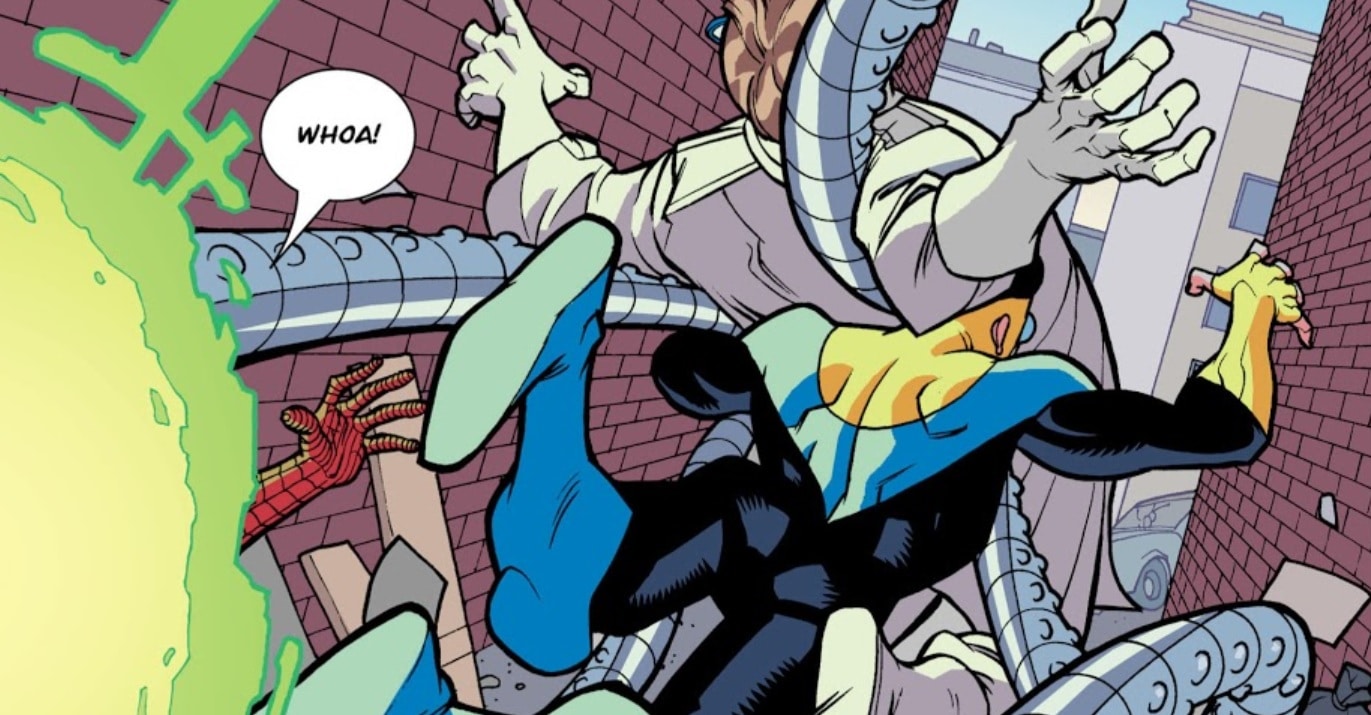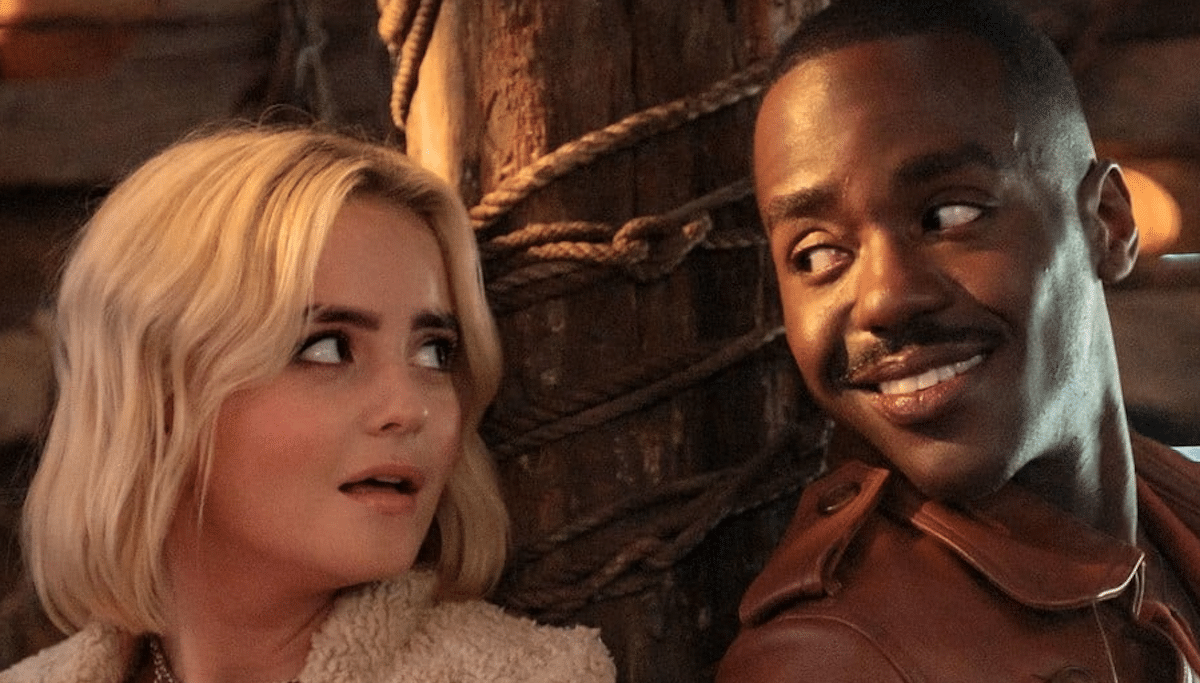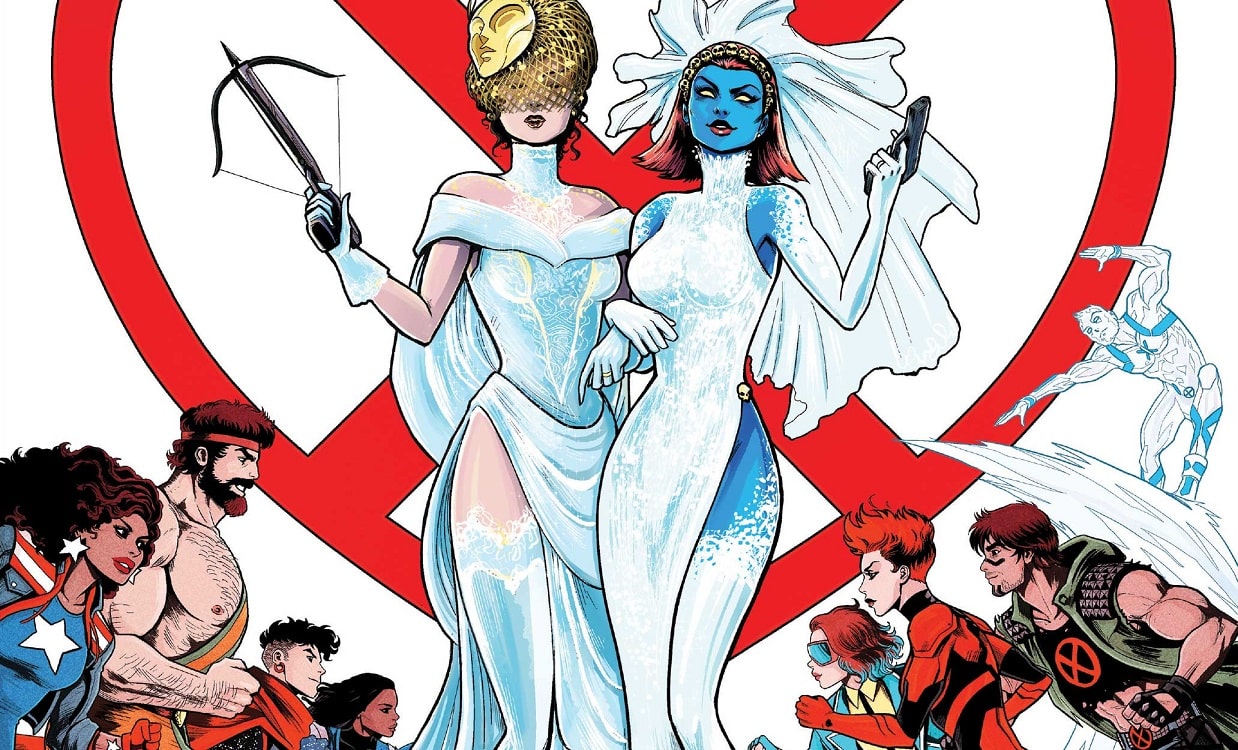In 2017, Rodney Barnes (Killadelphia) and Joshua Cassara (X-Force) gave Sam Wilson, the Falcon, a new series that rose from the ashes of Secret Empire, a storyline that saw Captain America betray his country as an agent of HYDRA. The cover for Falcon’s first issue, illustrated by Jesús Saiz, showed Wilson breaking Cap’s shield in two, a statement on his intent to step away from Steve Rogers to not only find his own identity but to prove his worth didn’t need to be measured by the character of his team-up. The path to that realization was hard and the creative team behind the comic made Wilson literally go to hell in search of it.
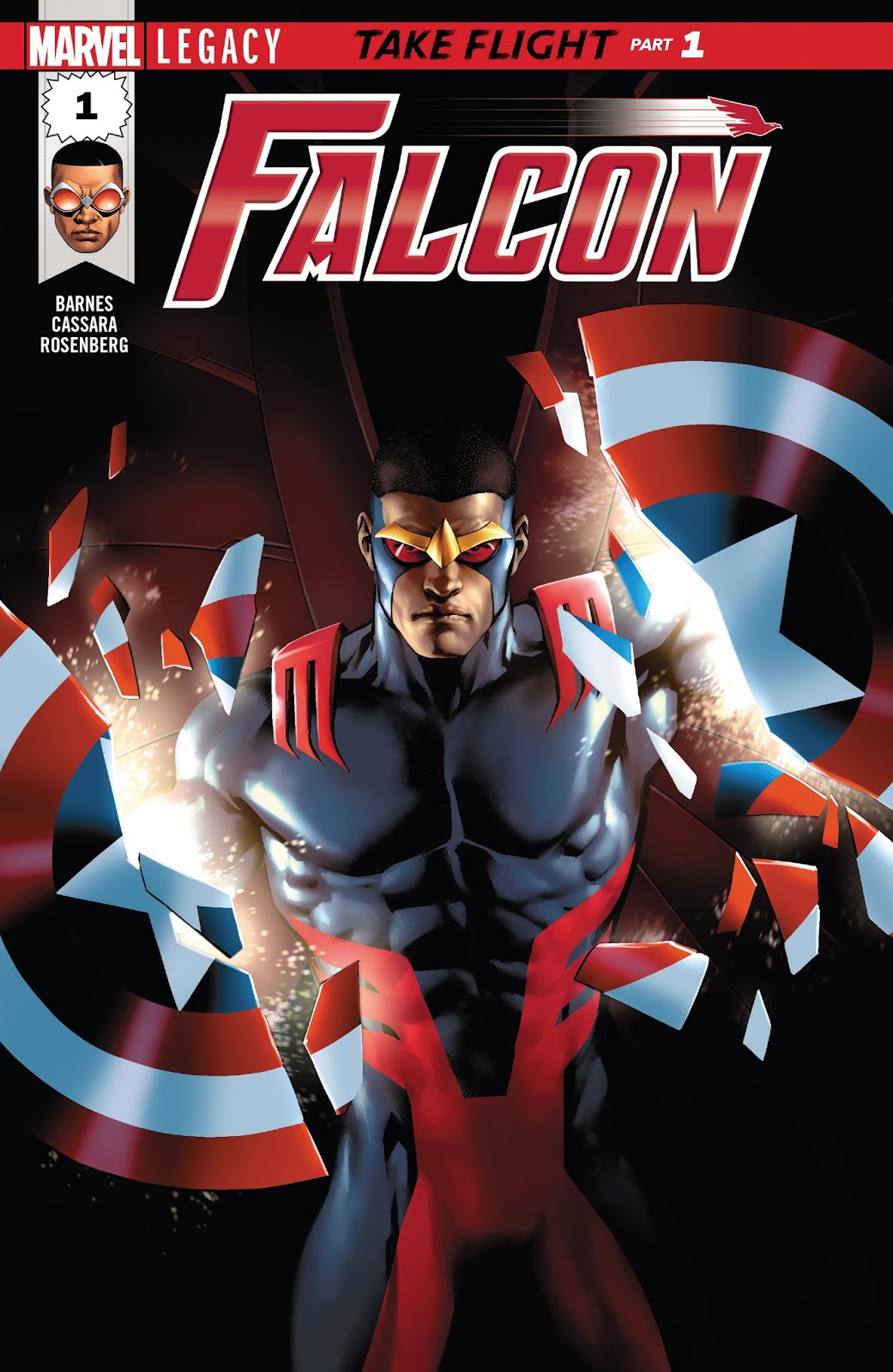
This setup alone is enough to sustain a long-running comic book series, but Barnes and Cassara didn’t want to stop there. Falcon would add social justice and racial politics to the mix in what turned out to be one of the best uses of a superhero character to convincingly address gang violence and the motivators behind racial animosity in mainstream comics. It’s criminal this series only ran for eight issues.
Falcon, which is subtitled Take Flight, centers on the character’s struggle to step out from under the shadow of Captain America to become the face of justice for the people that are still fighting to be recognized by the country’s many flawed institutions, mainly the police. He lands on Chicago guided by a sense of mission that sees him trying to stop the gang war that’s turned the city into one of the most concentrated areas of violent crime in the nation, all while accompanied by his new partner, Patriot, and Doctor Voodoo.
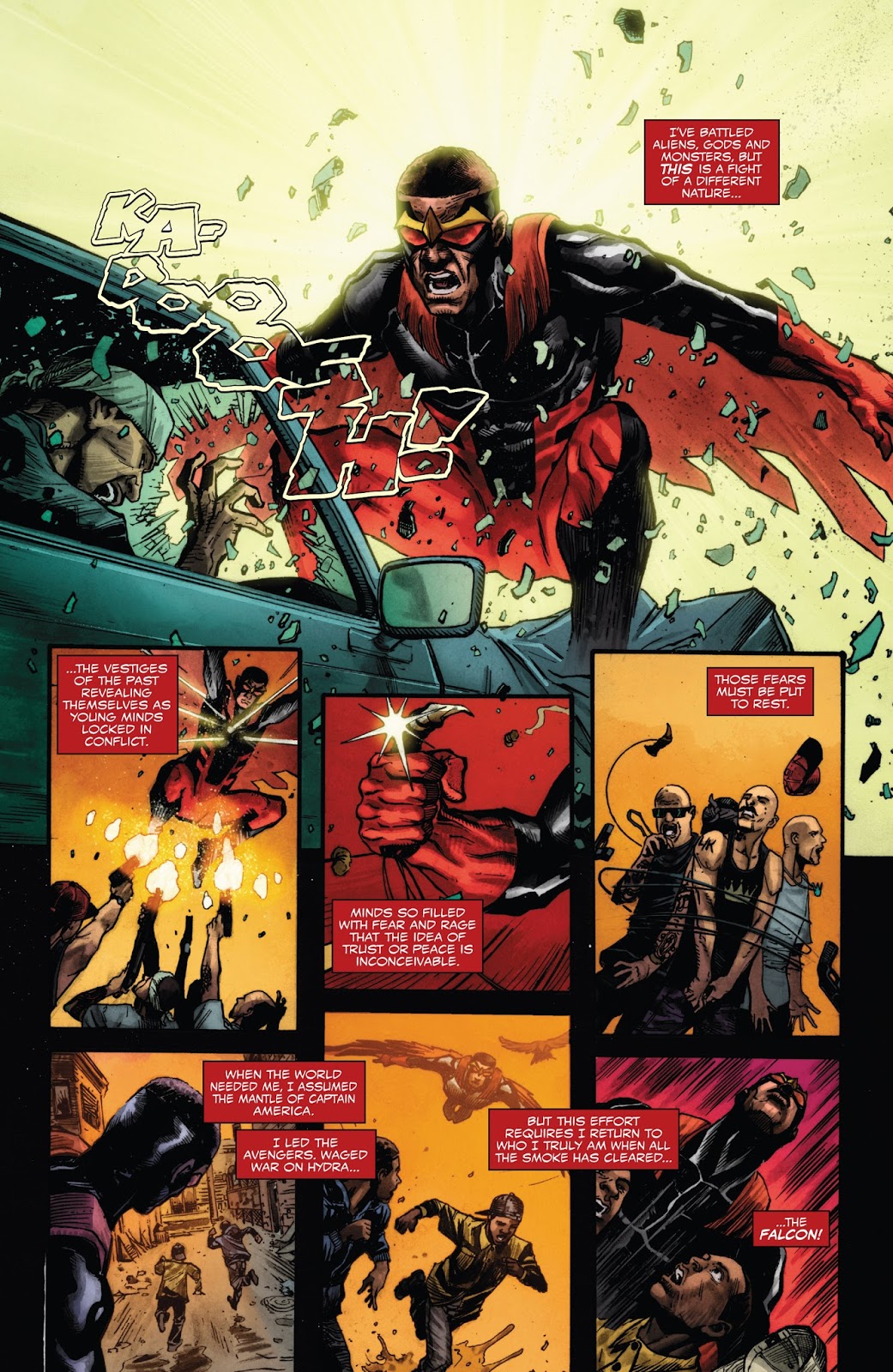
Barnes and Cassara make it clear from the first issue they want the comic to feel current and urgent. Falcon comes out in the context of massive Black Lives Matter demonstrations fueled by the many police shootings of unarmed black people who saw their cases play out in public as concrete examples of racial injustice.
Public outcry intensified given the lack of accountability afforded to those officers that perpetrated the killings. Terence Crutcher, Philando Castile, Alton Sterling, and Keith Lamont Scott were among those who were shot and killed by the police. It all adds to Falcon’s commentary on the state of law enforcement in America, highlighting Wilson’s frustrations with the systems that govern over us.
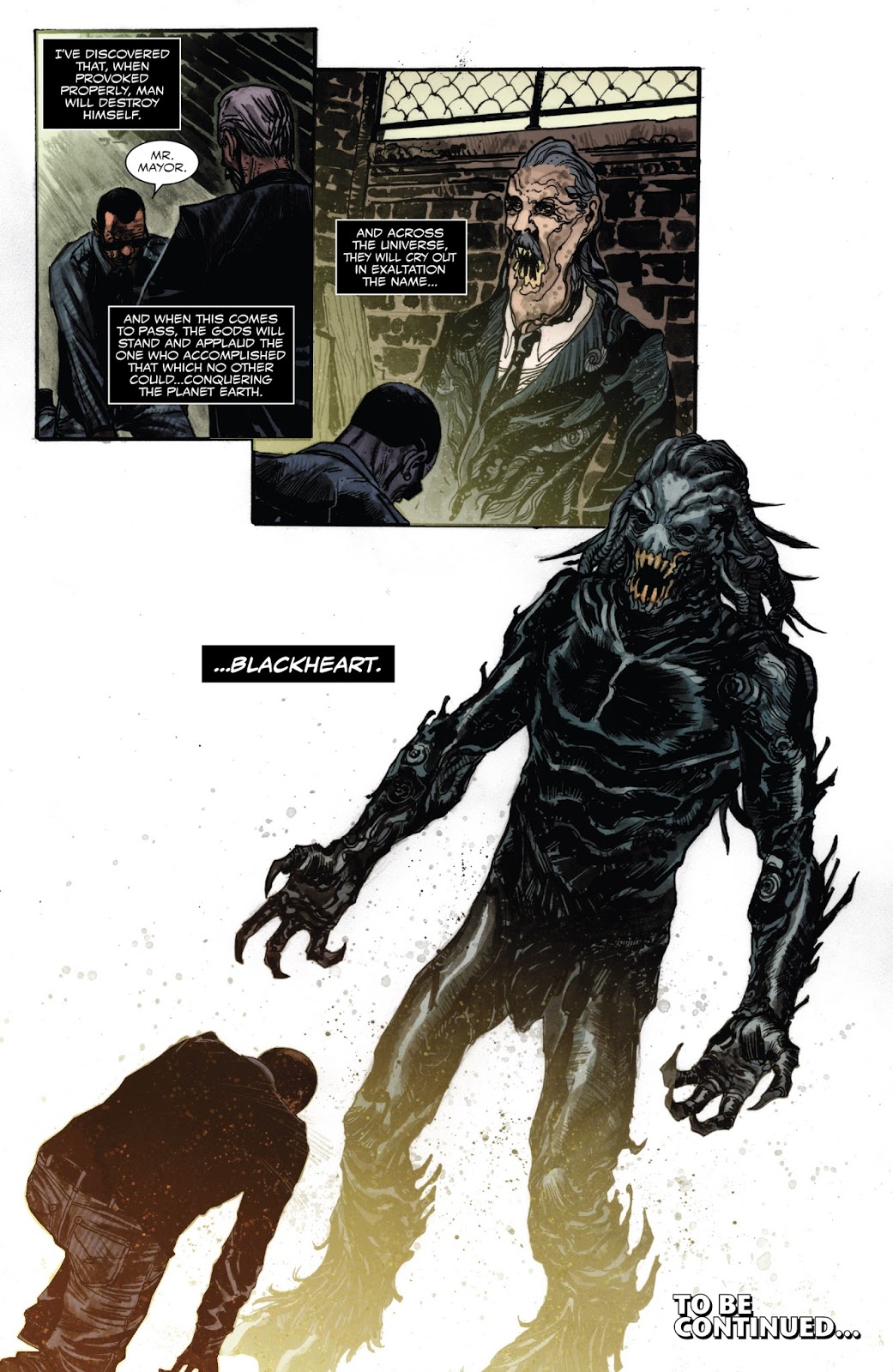
Falcon finds a near perfect villain in the form of Blackheart, the son of Mephisto and all-around enthusiast of things unjust. This infernal supervillain walks the streets of Chicago in the guise of its mayor and plays the role of systemic racism. He’s the reason why Falcon’s truce ends in bloodshed.
Wilson’s plan is to get the city’s two biggest gangs—the Rangers and the Kings—to make a truce to end their conflict. A black man called Dray represents the Rangers while a Hispanic man called Ortiz represents the Kings. They both agree to end hostilities.
On the cusp of a historic ceasefire between the two gangs, Dray betrays the deal and murders the leader of the Kings. A riot breaks out and the all-too familiar images of cops beating down on people indiscriminately play out as Wilson and Patriot are left to clean up a mess many believe they’re responsible for.
Blackheart, in the guise of city mayor, is revealed to be the corrupting influence behind Dray’s actions, playing up the flaws and the corruption behind the institutions that should be looking out for all its citizens. In this case, Dray’s betrayal is not evil for evil’s sake. It’s orchestrated by a higher power that wants to further divide the people. Falcon and Patriot must become the symbols of hope and unity they are capable of being to bring everyone out of the darkness of lies and deceit and into the light of truth, clearly showing those who were actually responsible for the chaos.
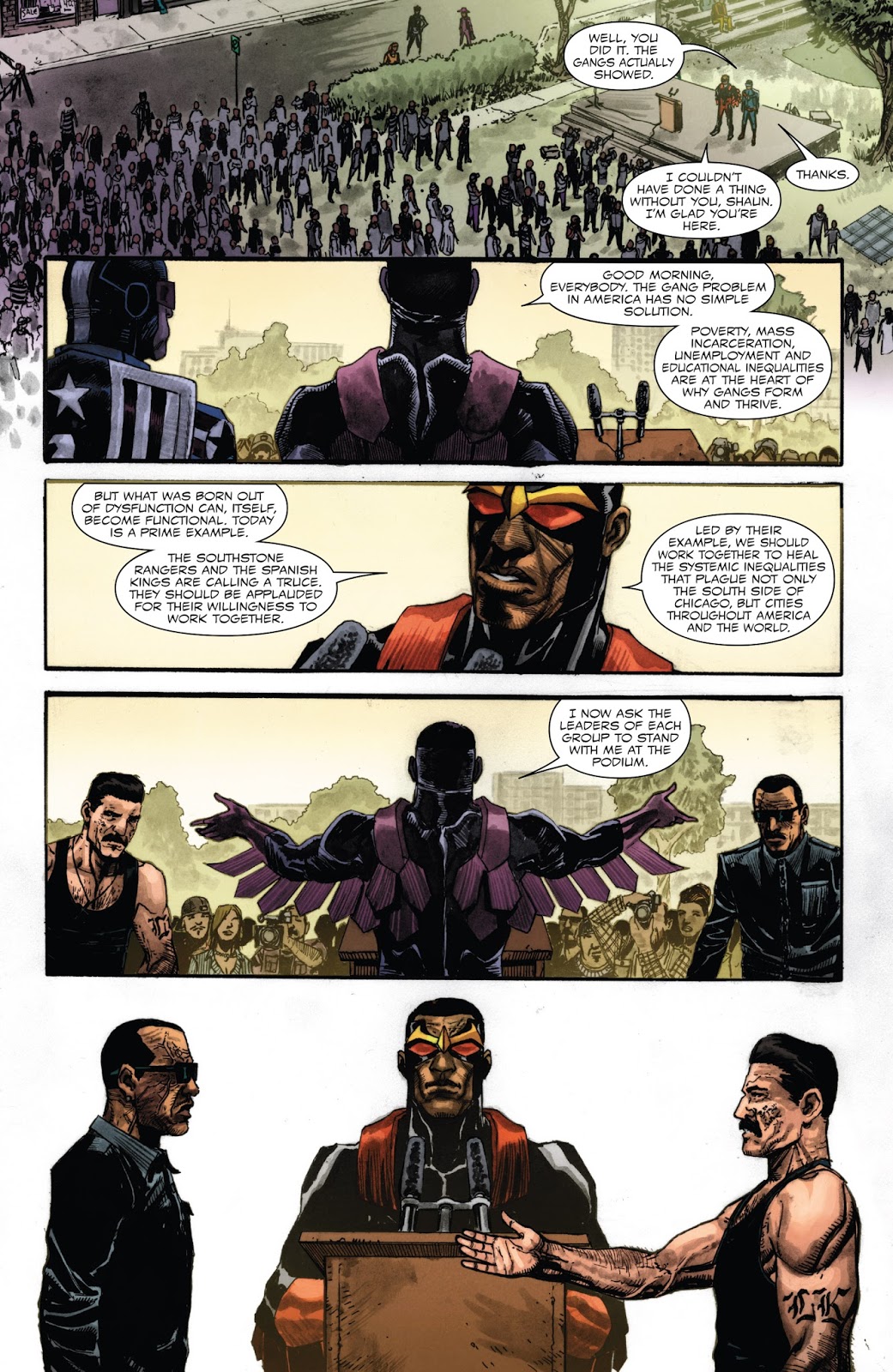
Falcon is an intense comic and it doesn’t pull any punches when speaking out against the type of people that keep cities fractured and in a state of constant violence. One of its enduring lessons is that crime and injustice never operate in a vacuum. They have a history, actors that further extend their reach, and systems that keep them in place. Barnes and Cassara’s Falcon is a sobering reminder of these conditions and it makes for a crucial read for those in the process of understanding why a movement like Black Lives Matter needs to exist.


